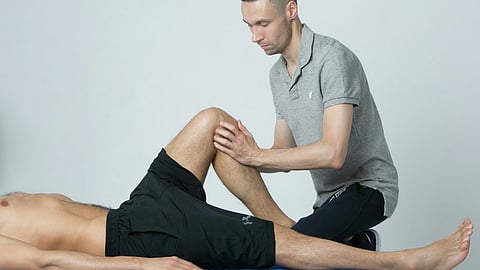References:
1. National Commission for Allied and Healthcare Professions. “Curriculums.” NCAHP, April 23, 2025. Accessed May 1, 2025. https://ncahp.abdm.gov.in/Curriculum.ncahp.abdm.gov.in+5ncahp.abdm.gov.in+5ncahp.abdm.gov.in+5
2. Indian Medical Association. “PHYSIOTHERAPISTS CANNOT USE THE PREFIX 'Dr'.” IMA India. Accessed May 1, 2025. https://ima-india.org/ima/left-side-bar.php?pid=476.ima-india.org
3. Indian Association of Physiotherapists. “IAP Public Notice – 2010.” The Indian Association of Physiotherapist, March 28, 2010. Accessed May 1, 2025. https://www.physiotherapyindia.org/news-events/notices/3953-iap-public-notice-2010.html.
(Input from various sources)
(Rehash/Sakshi Thakar/MSM)


